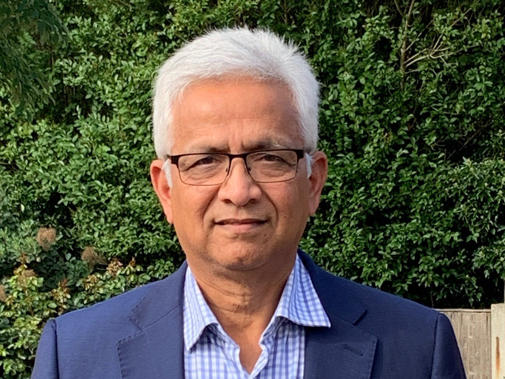I came to the UK in September 1989 for a two-week holiday. Having read a lot about England as a youngster, and worked with consultants in India who had worked in the UK on international clinical fellowships, I had a certain curiosity about the country.
The day after landing, I sat the PLAB (Professional and Linguistic Assessments Board) exam. A week later, I had passed. To my wife’s utter shock and surprise, I declared that I was going to find a job in the UK, take my fellowship, and return to India after the allowed period of four years.
Working hard in my SHO and registrar posts, I got my fellowship. Five years later, I was sitting in a consultant urologist’s office in Surrey for a pre-shortlisting visit after applying for a teaching hospital rotation. He shook his head gravely, almost apologetically, saying, ’Nitin, this post is for UK trainees only, so there is no point in applying. Better if you look for a visiting registrar’s post’.
A really nice guy, as I soon discovered, he appointed me a month later as urology registrar on the rotation. A frantic phone call from medical staffing at the teaching hospital the day before had led me to attend the interview. Across the interview table, as we both shook hands, we grinned. Destiny! There was no looking back! After going through the urology training in the Kent Surrey and Sussex Deanery, I was appointed consultant urologist in Canterbury in December 2000.
Today, 25 years after my interview, I have left the NHS, but remain in active independent practice. Of course, it wasn’t all easy! The thought that has crossed my mind over the years: I was in the right place, at the right time. There were many other good surgeons around, stuck in middle grade posts, who could have worked as equally effectively as consultants. I was ‘lucky’!
If the system had managed those others better, UK urology and the NHS could have been richer. I have watched the difficulties these colleagues have gone through. I have seen the lack of support and respect.
When I saw the difficulties faced by applicants for CESR (the certificate of eligibility for specialist registration), I felt strongly, that I could help provide some form of guidance to those middle grades wishing to work towards achieving consultant status, and improve the quality of life for those who were content in being so.
I felt so because very close to home, my wife, a trained gynaecologist, had taken up an SAS post to facilitate my training. Later, with supportive consultant colleagues, she went through Article 14 to obtain the CESR and was appointed a consultant in obstetrics and gynaecology.
Tim O’Brien’s election as British Association of Urological Surgeons president could not have been at a more appropriate time and we have formed a small working group. We hope to work together with our SAS grade colleagues, mostly international medical graduates, and offer them support and guidance at work, and mentorship in their quest towards obtaining CESR. We realise we cannot achieve this without help from the consultant and trainee body and have requested consultants who have gone through CESR to act as mentors. The response has been very encouraging.
My time in BMA UK council from March this year, has been a steep learning curve. As a BMA member for 30 years, I had rarely taken any interest in this aspect of the profession due to a busy working life. Under the leadership of Chaand Nagpaul, and guidance from Kailash Chand, Anil Jain and others, I look forward to exciting times in my work in the IMG (international medical graduates) steering group.
Nitin Shrotri is a consultant urologist in East Kent, BMA UK council member (Finance, PLG and IMG steering group) and chair of the BAUS working group on Project SAS

